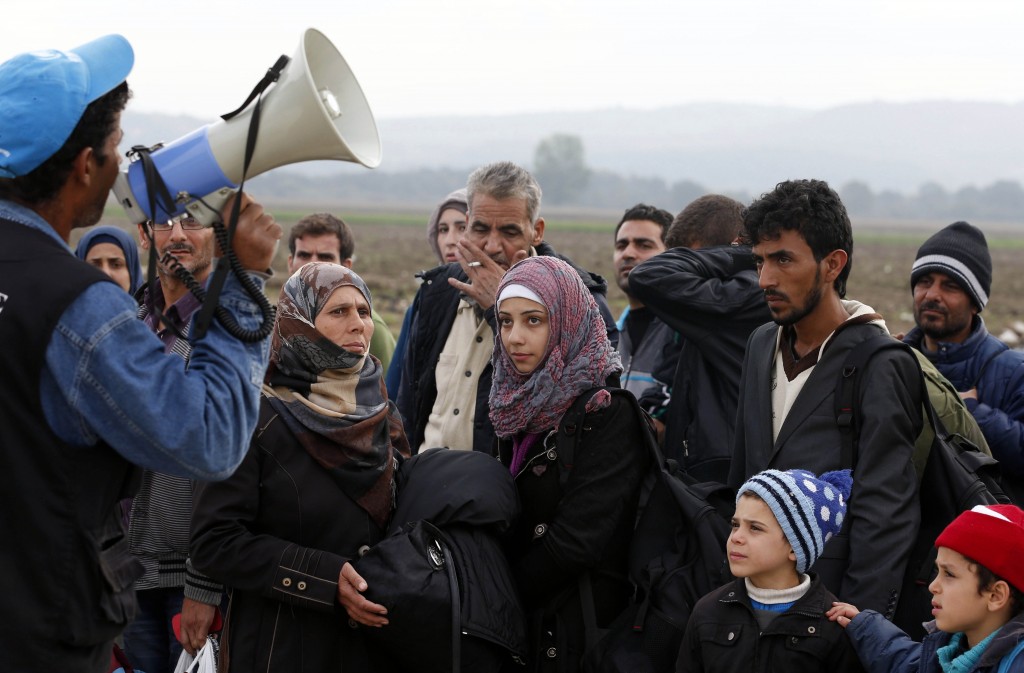
By Jamie O’Brien
Archbishop Timothy Costelloe has this week responded to the news from the Federal Government announcing the distribution of visas to refugees in Syria.
The announcement regarding the visas from Federal Immigration Minister Peter Dutton, who was in Jordan for the occasion last week Tuesday 3 November, is a positive way forward, Archbishop Costelloe said.
“I am currently having a number of discussions with our community-based social outreach agencies about how we can best make plans to ensure that we are ready to provide assistance on the ground as generously and as practically as possible when the arrival of the first refugees from Syria takes place,” he said.
“There are numerous factors we must, and are, taking into consideration and we look forward to continuing to work in a coordinated manner with State and Federal Government on this delicate but most vital task of helping the arriving refugees to rebuild their lives.”
Upon their arrival, refugees will be assisted in the immediate term by Federal Government agencies, Communicare and/or the North Metropolitan Migrant Resource Centre, which will include meeting people at the airport and helping them find immediate accommodation for up to six to 12 months.
It is during this time that Catholic organisations such as St Vincent De Paul Society and the Edmund Rice Centre Mirrabooka (ERC) are on hand – albeit even in a small way initially – to provide assistance and support.
“As a Catholic community, we stand ready to do more – and to respond with the generosity, compassion and practical assistance called for by Pope Francis – and to remember that, as Christians, we are followers of the One who Himself took refuge in Egypt, together with His mother Mary and her husband Joseph, when their lives were threatened by King Herod,” the Archbishop said.
“This refugee child would grow into the man who told the story of the Good Samaritan, the stranger who could not turn away when he was confronted by someone who was in desperate need,” he said.
St Vincent De Paul Society (SVDP) CEO Mark Fitzgerald and ERC Director Stephen Bowman echoed the words of the Archbishop. Both organisations are key stakeholders in the work of assisting newly arrived refugees, while also working with the Archdiocese to understand what, how, why and where support is needed.
“The St Vincent de Paul Society will help on a number of fronts, working with the Metropolitan Migrant Resource Centre to assist newly arrived migrants, initially supporting their housing by providing household items for them once a house is found,” Mr Fitzgerald said.
“Our conferences and Migrant and Refugee Committee also support refugees through introducing them to services, supporting their awareness of different aspects of life in Australia, providing them with friendship and conducting home visits which help them with necessities of life,” he said.
Mr Fitzgerald went on to explain that, unfortunately, over the last year or so, the Federal Government has implemented policies that have seen a fall in the number of refugees arriving to Australia through the Humanitarian Settlement Service.
This has meant that the additional refugees who will now call Australia home will only bolster those numbers to a level slightly higher than were once supported by the SVDP Society.
“We believe that a country like Australia has the capacity to support more refugees,” Mr Fitzgerald said.
“We need to open our policies, minds and hearts to people from all walks of life and stop the language and stigma given to people legitimately wanting to create a better life in our wonderful country.”
ERC Director Stephen Bowman also talked about the role the ERC plays assisting newly arrived refugees settle into Australia.
“They [the refugees] may access some of our English classes or computer studies classes, but initially we would have very little involvement.
“It is only when they exit that initial six to 12-month stage that ERC gets more involved with people, assisting them with services for up to five years,” he said.
Mr Bowman continued by explaining that the ERC is funded under the Federal Government’s Settlements Grant program and provides newly arrived refugees (after the initial six to 12-month period) with assistance such as driving licence education, assistance with housing, including teaching more about the requirements of tenants’ rights and responsibilities, life skills around food nutrition, paying bills and getting involved in schools.
“We also run extensive after-school programs for youth, in the sport and recreation area as well as in assisting and supporting young people with their education,” Mr Bowman said.
“This is the range of services that could follow in the first six to12 months, after people have adjusted and have settled in.
Enquiries regarding assistance and support for the refugees can be directed to Manager of Catholic Services Development, Renay Grech, via email to renayg@archdiocese-perth.org.au.